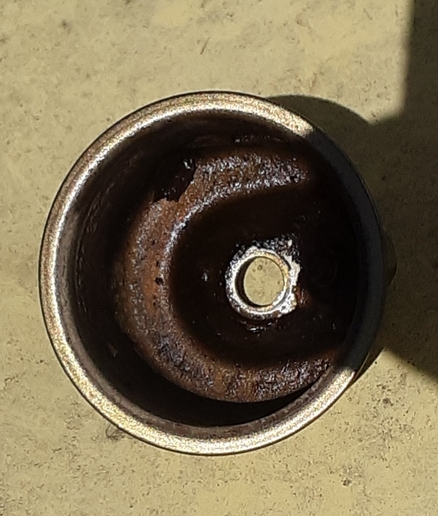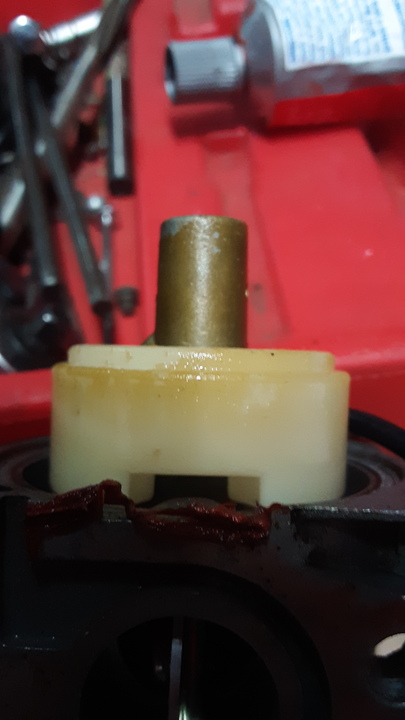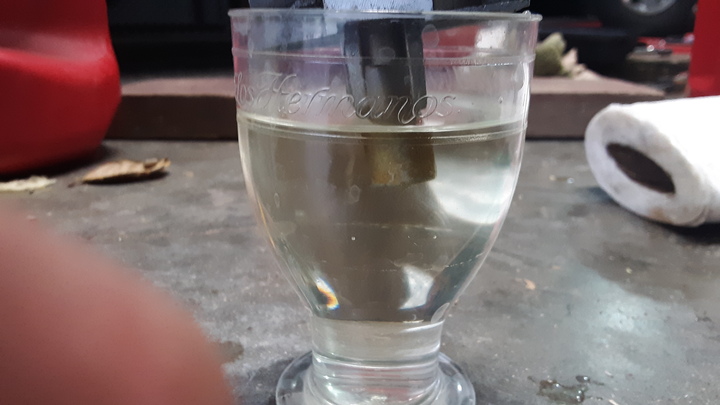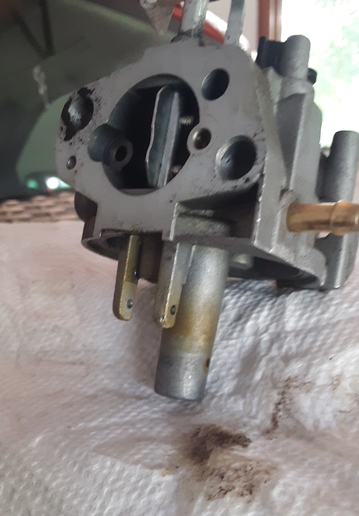Geo-TH,In
Well-known Member
Will someone tell me why my gas tank has no rust, yet the metal carb bowls on my champion generators rust?

To prove the red material on the aluminum part of the carb is rust, I put the part of the carb in bleach.


The bleach turned the rust black and I was able to wipe it off with a paper towel. If the reddish material were varnish, would bleach remove it?

So I want to know why the metal inside the gas tank is rust free and the carb isn't.
Some are going to blame ethanol.
When I was a kid, decades before ethanol, I would buy honda motorcycles that sat for a long time.
The gas tanks and carbs were full of rust. So using ethanol as an excuse for rust is questionable.
I decided to turn the gas off and run the generator until it ran out of gas. Then I used a 10mm wrench and loosen the bolt holding the carb bowl in place. Some Gas ran out of the carb.
So in the future when I'm done using my generator, I'm going to turn my gas off and loosen the bowl bolt. Next day, I'll tighten the carb bolt.
If the metal gas tank doesn't rust, why can't they make a carb bowl that doesn't rust??
I don't use my generators very often, so once a year I drain the old gas and replace it with new gas.
I don't have carb issues with my lawn mowers, tiller, terramites and my antique tractors. I leave those carbs full of gas year around.
I only have carb issues with my 3500 w Champion generators. Grrrrrrrrrrr,
I wonder, will a grounding rod prevent rust?lol

To prove the red material on the aluminum part of the carb is rust, I put the part of the carb in bleach.


The bleach turned the rust black and I was able to wipe it off with a paper towel. If the reddish material were varnish, would bleach remove it?

So I want to know why the metal inside the gas tank is rust free and the carb isn't.
Some are going to blame ethanol.
When I was a kid, decades before ethanol, I would buy honda motorcycles that sat for a long time.
The gas tanks and carbs were full of rust. So using ethanol as an excuse for rust is questionable.
I decided to turn the gas off and run the generator until it ran out of gas. Then I used a 10mm wrench and loosen the bolt holding the carb bowl in place. Some Gas ran out of the carb.
So in the future when I'm done using my generator, I'm going to turn my gas off and loosen the bowl bolt. Next day, I'll tighten the carb bolt.
If the metal gas tank doesn't rust, why can't they make a carb bowl that doesn't rust??
I don't use my generators very often, so once a year I drain the old gas and replace it with new gas.
I don't have carb issues with my lawn mowers, tiller, terramites and my antique tractors. I leave those carbs full of gas year around.
I only have carb issues with my 3500 w Champion generators. Grrrrrrrrrrr,
I wonder, will a grounding rod prevent rust?lol

